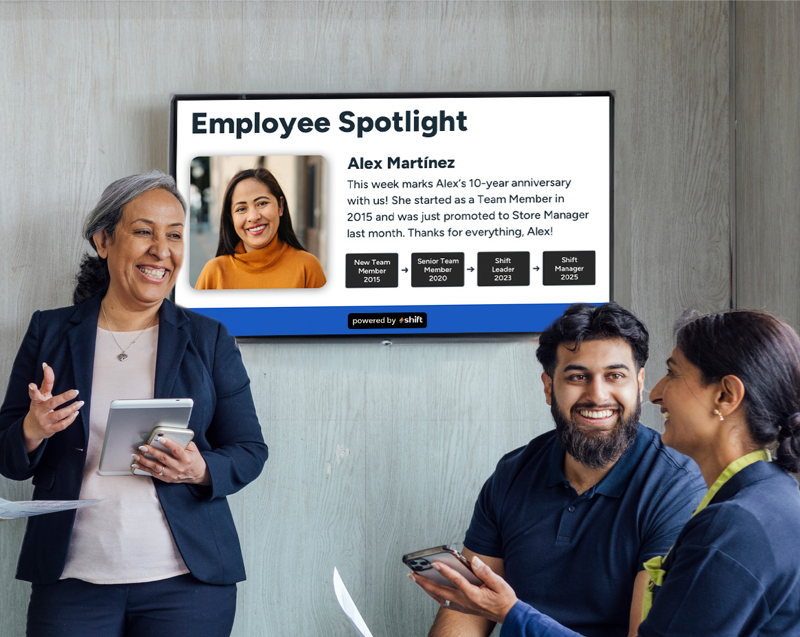By Theresa Bontempo
Federal employees can enhance their skills and knowledge through customized training initiatives, which take into account their specific roles within the organization. Personalized courses are designed to address specific job requirements and provide employees with a deeper understanding of their responsibilities.
Through customized training solutions, federal workers can enhance their skills and knowledge in line with their specific roles. They can focus on areas of expertise that are essential for their job positions, and these can be applied in their daily work.
Federal workers can gain a deeper understanding of their job duties and skills through these initiatives, as the exercises and training content are designed to reinforce relevant competencies.
Purpose of Training
Different federal agencies have their own requirements that are catered to by custom training initiatives, which ensures that the modules do not have generic content but are tailored to suit the unique needs of each division.
The goal of custom training is to align learning outcomes with job applications. This ensures that employees can immediately apply the knowledge they've acquired into their daily work.
The customized solutions are made to integrate the latest industry practices and methodologies, which helps ensure that employees stay updated and knowledgeable about the changes in their fields.
The main advantage of customized training for federal workers is that it equips them with the skills that will allow them to excel in their line of work. This approach to training can result in improved job satisfaction and efficiency.
The customized solutions offered by federal agencies cater to the varying job requirements and needs of their employees. The programs' structure ensures that workers get the training programs that are aligned with their responsibilities, which results in numerous advantages for the workforce and the company.
What are the Advantages of Training Initiatives?
The use of customized federal training can help strengthen an agency's internal talent pool by developing the skills of current employees. It also decreases the reliance on external recruitment. By investing in targeted training, organizations can encourage staff growth and minimize the need to outsource certain tasks.
The investment made in the development of their employees is seen as a reflection of the company's commitment to their growth, which results in better retention. The acquisition of custom-made federal training represents a strategic move to reinforce the talent pool and improve the knowledge base of employees. It is a more fiscally prudent strategy than employing costly external recruitment.
The goal of continuous development and training is to foster a culture of progress and learning within the company. This approach often leads to improved employee morale, as they see that the organization is committed to their career advancement.

By fostering the internal workforce's skills, federal organizations can reduce their dependence on external recruitment and outsourcing. Doing so can minimize the time and costs involved in the hiring process.
Productive Work Environment
The impact of internal development on employee retention is significant. When staff members see the organization's commitment to their growth, they will begin to feel more engaged and appreciated. This can significantly boost job satisfaction and productivity.
A firm emphasis on internal development entails fostering a culture of loyalty and dedication among workers, leading to a more dedicated and motivated workforce that is focused on the organization's long-term success. This expenditure magnifies employee loyalty and dedication to the company's mission.
Through customized training, federal workers can improve their skills and capabilities related to their assigned positions. The staff members can then adapt to new situations by acquiring a set of abilities that enables them to excel in their chosen field.
With the expanded skill set, workers can become more agile, well-rounded, and capable of handling various tasks. They can also effectively navigate through the many challenges that their job functions bring.
This type of specialized training is beneficial for developing individuals who can handle various tasks and take on new challenges. With a broadened skill set, workers can become more responsive and flexible to the changing needs of their positions.
A federal worker can acquire greater agility in task management through customized training, as it broadens their skill set and enables them to confront formidable obstacles. This adaptability also makes them more resourceful and proficient in their assigned roles.

The development of skills through customized training can also stimulate the creativity and innovative thinking of employees, which creates an environment where such concepts can flourish.
Keeping up With the Trends
Through customized training, federal agencies can ensure that their employees are constantly updated with the latest technology and regulations in their respective fields. It allows them to perform their duties more effectively and efficiently.
By implementing a proactive learning approach, federal workers can keep up with industry trends and contribute to the efficiency and progress of their departments. The continuous growth and learning of the workforce is also beneficial for the organization.
Federal workers can undergo customized training to accommodate the changing needs of their job functions and use the latest tools and technologies. This type of instruction emphasizes the users' specific requirements and provides an overview of the tools and technologies being used in their field.
Workers can respond to and understand regulatory changes applicable to their department with specialized training. Complying with the changes ensures they can remain proficient in their ability to carry out their work responsibilities.
Through customized training, employees are able to embrace new industry trends and improve their ability to navigate through the changes. It also helps promote innovation within their department.
The continuous learning of federal employees is a key component of the company's strategy to improve its productivity and encourage career advancement. This environment provides an ongoing opportunity for employees to develop their skills and talents.
Training Obstacles
Unfortunately, the time constraints that public sector employees have are the main obstacles to providing training. Most of them are required to work either a standard work week or a schedule that includes odd hours and weekends. This can be very challenging to accommodate since most city employees are also very busy.
Due to the time constraints of employees, local governments have started to develop alternative methods of providing training. These include online and remote programs that are designed to accommodate employees' needs. Unlike in-person classes, these methods allow participants to complete their training at their own pace.
Due to the increasing use of mobile devices and smart technology, it's now more common for local governments to use hybrid learning methods for their employees. These methods will allow them to continue training their employees through a combination of online and virtual workshops.
For local government training managers, the most challenging aspect of incorporating instructor-led classes into their operations is optimizing their effectiveness for convenience and efficiency. They want to minimize disruption while still ensuring that their employees receive the required training.
Combining Training with Work Responsibilities
One of the most effective ways to incorporate training into an organization's operations is by integrating it into the work flow. This can be done by establishing a mentorship program that involves assigning a supervisor or mentor to guide the employees through the learning process.
Another effective method of incorporating training into an organization is by establishing a tiered approach. This allows for more targeted training sessions that are designed to meet the needs of specific job roles and requirements.
The seamless operation of local governments' diverse departments is very important for the well-being of their communities. A dedicated team is responsible for overseeing the various aspects of the organization's operations, including training and development. These individuals play a vital role in ensuring that employees receive the necessary skills and knowledge to provide the best possible service.
Importance of a Leader
Most of the training that employees receive will be handled by a development and training manager. According to the US Bureau of Labor Statistics, this individual is responsible for planning and implementing training programs for the organization's employees. But, there's no way that this individual can handle all of the training needs of the different departments.
The learning team of a training manager is composed of coordinators and officers who handle the various aspects of the program's delivery. They are assigned to ensure that the employees receive the necessary training according to the goals and expectations of the training manager.
The development and learning departments of local government are responsible for weaving the threads of knowledge, skills, and efficient service delivery into a cohesive whole. As the coordinators and training officers of these departments work behind the scenes, they make sure that the employees have the necessary skills to excel in their line of work. Their dedication and hard work ensure that government functions remain agile and responsive to the needs of the community.
5 Key Opportunities for Growth Among Government Employees
In order for government employees to maximize growth and learning potential, these key practices should be applied to help them leverage their careers and contribute effectively.
- Peer Collaboration
Federal employees can participate in peer learning, a collaborative method that encourages them to connect with their colleagues and share their experiences. This allows them to discuss their problems and develop new perspectives.
Federal workers can gain a deeper understanding of certain subjects through peer learning, as these individuals typically have unique knowledge that is not covered in formal training courses. Being able to interact with other professionals fosters opportunities for networking. Building connections with individuals from other agencies can also help expand one's professional circle.
- The Crucial Influence of Managers and Leaders
Managers and leaders in the federal workplace are not only supervisors, but they also play a vital role in shaping the development and growth of their employees. They provide employees with guidance and insight on how to improve their performance.
Through mentorship, federal employees can develop their professional and personal skills, which can be provided by experienced managers who have faced the challenges of the federal workplace.

Federal employees should regularly communicate with their managers to understand their own performance and areas for improvement. Performance discussions and feedback are crucial to the learning process, and federal workers must actively engage with their superiors to improve outcomes.
- Learn Something New Everyday & Paying Attention
Unlike traditional training methods, on-the-job education is more comprehensive for federal employees. It allows them to improve their skills and knowledge in their regular roles.
Every day, federal employees have the opportunity to improve their knowledge and skills. To ensure that they are able to perform their duties efficiently, they should regularly identify areas of their work that they can improve.
One of the most effective ways to enhance one's skills and experience is by participating in projects that are aligned with one's role. Federal workers typically carry out tasks that require specific skills and knowledge, and this type of activity provides them with an opportunity to learn from real-world situations. To maximize their daily tasks, federal employees should adopt a growth mindset.
- Project-Based Learning
Through project-based learning, federal employees can develop their skills and knowledge by working on various projects. Unlike traditional education, this method emphasizes hands-on learning, which allows participants to gain valuable experiences and insights. It also allows them to apply concepts in real-world situations.

Projects are often tasked with solving complex problems, which can require innovative approaches. Federal employees can improve their problem-solving capabilities and contribute to the advancement of their agency through participation in and training on project management.
- Training Programs & Certification Programs
Federal workers can enhance their knowledge and expertise through the formalization of their training, such as certification courses. These credentials are recognized and can help individuals demonstrate their proficiency in certain fields of expertise, and employees can greatly benefit from these types of certifications which are a commitment to continuous education.
Earning certifications can add credibility to your already established expertise and skills, making you an indispensable part of your organization. In-depth training programs designed for these credentials provide employees with a deeper knowledge of the subject. Several federal positions require specific credentials for advancement. By acquiring these credentials, you can expand your career opportunities within the organization.
How Shift Can Make an Impact in the Workplace
Communication practices often get lost in the workplace, which makes it a huge issue for government workers to collaborate and work effectively. Shift solves this issue with their digital signage, so your staff is always up to date and informed on the latest office news and communications.
















